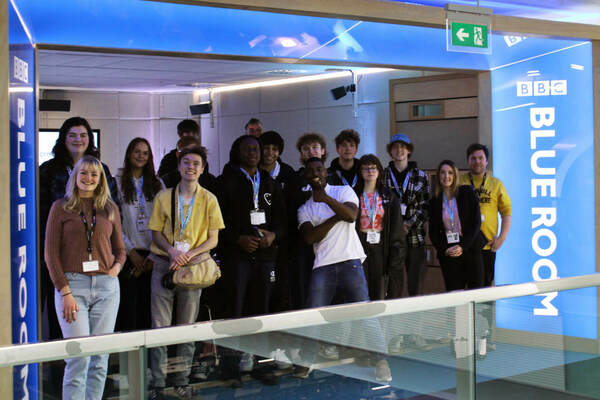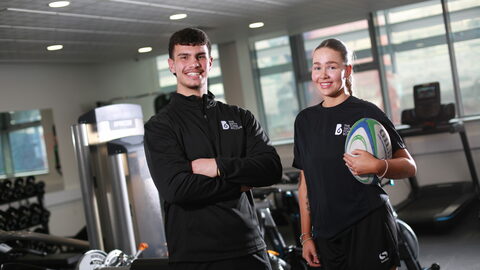Course overview
The main purpose of the A level Photography course is to develop your ability to appreciate the visual world and to enable you to respond in a personal and creative way. You will have access to cameras or learn how to use your camera and be required to explore different genres of photography including documentary, street photography, experimental imagery, portraiture, studio still life, landscape photography and fine art photography.
Entry requirements
Students studying three A Levels will be expected to have a minimum of two GCSEs at grade 6 and three other GCSEs at grade 5/4 or above, including English Language and Mathematics at grade 5/4 or eight GCSEs at a minimum of grade 5.
Please note, it is necessary to have studied Art & Design or Photography at GCSE to study A Level Photography. However, all prospective students are invited for an assessment, this is completed at The Sixth Form Bolton once you have attended your interview. This two hour workshop is designed to test your creative making skills. Any student who does not have GCSE Art & Design or Photography but completes the workshop to a high standard may be accepted on to the course.
Topics you will study
Topics covered include:
Camera-less Photography - chemigrams, photograms, pinhole photography, scanography
Camera Controls using 35mm DSLR camera and film camera - exposure control, shutter speed, ISO, aperture, white balance
Darkroom Photography - processing film, printing from a negative, image distortion, solarisation
Alternative processes - cyanotypes, sepia toning, experimental imagery
Studio Photography - studio lighting, still-life, portrait, fashion, fine art photography
Location Photography - landscape, urban, street, architectural, abstract, documentary
Key features
This course will provide the fundamentals of photography and you will learn analogue ways of working as well as new digital technology. Studying and exploring more traditional methods of photography provides you with the foundations to create the perfect image within the lens, whilst gaining a real understanding of exposure and camera controls. Traditional and alternative photography processes will also be explored and experimented with, whilst working with photo editing software such as Lightroom and Photoshop.
Projects are implemented that encourage you to:
Develop curiosity and question the photographic image, it’s meaning and context
Trust your creative instincts
Express your ideas and emotions through the exploration of a diverse range of materials, techniques, and processes
Articulate current issues using photography
Learning how to become a fully functioning artist/photographer is hard work but also lots of fun!
You are expected to keep up to date with current trends and exhibitions by visiting galleries, listening to relevant podcast, watching YouTube videos and television documentaries to broaden your knowledge as independent study. In the Art Department we believe everyone has the potential to be creative in a personal and meaningful way. You must be keen to produce images every week and work as much outside class times as within the time-tabled classes (4.5 hours a week homework or more).
The department has a studio with lights and backdrops, computers in the classroom with access to the Adobe Creative Suite (also accessible from home) and a photographic darkroom.
Assessment
The A Level Photography course comprises of two units. Each involves research and analysis into artists and photographers, experimentation of a range of photographic media, development of ideas and the presentation of your own ideas/images. In the first year, you will be introduced to a range of techniques, processes and media through specially designed workshops.
Component one: Personal Investigation (60% of final grade)
Component two: Externally set assignment (40% of final grade) runs from February to May of the second year.
Both components are internally assessed and externally moderated. You will also present a portfolio and an exhibition of your work covering both components which is internally assessed and externally moderated.
Exam Board: Eduqas
Enrichment and Work Experience
Throughout the academic year there will be several day trips to galleries, artist studios and city visits to gather and practise your observation recording techniques. Some will be enriching, but for those that are compulsory, travel costs will be met by The Sixth Form. Enrichment workshops are delivered by the teaching staff and will take place throughout the academic year to further develop your skills and broaden your knowledge. There is also an expectation that students will complete a one-week work placement in the summer term. Entering competitions is also a key part of enrichment, in the past our students has been successful in gaining first place positions across a range of exciting external competitions.
Why choose B6?
We are one of the few A Level Photography providers where you will learn traditional darkroom techniques and have access to specialist studio and photographic equipment that will support your personal progress. This will help you build up an innovative and exciting portfolio of work which will support you in studying at higher level progression or within employment.
Future career opportunities
Students mainly progress to university and then into careers in the design industry, as well as gaining apprenticeships. Studying photography enhances creative problem solving skills required by future employers. Career pathways include fashion photography and styling, editorial photography, photojournalism, studio photography, travel photography, sports or freelance photography.
Additional information
To support your studies, you will be required to purchase relevant materials as the course develops, most are readily available from reputable art supply shops and/or from ourselves. Please note this is a consumable subject, students will have to pay for specialist media and materials throughout their time here.
Related Courses
News
Exceptional achievement for young rugby stars
Exceptional Achievement for Young Rugby Stars Jack Lightbown, aged just 17, was recently selected
Sixth Form Expressive Arts Alumni Share Their Success Since Leaving B6
It’s always lovely when former students drop in to see us and recently a number of Expressive Arts
B6 Students’ Artwork Installed at Peel L&P
Congratulations to Hamaad, Gina, Katie-Leigh, Tamara, Zahra and Zakiyah! Last year they were set a








